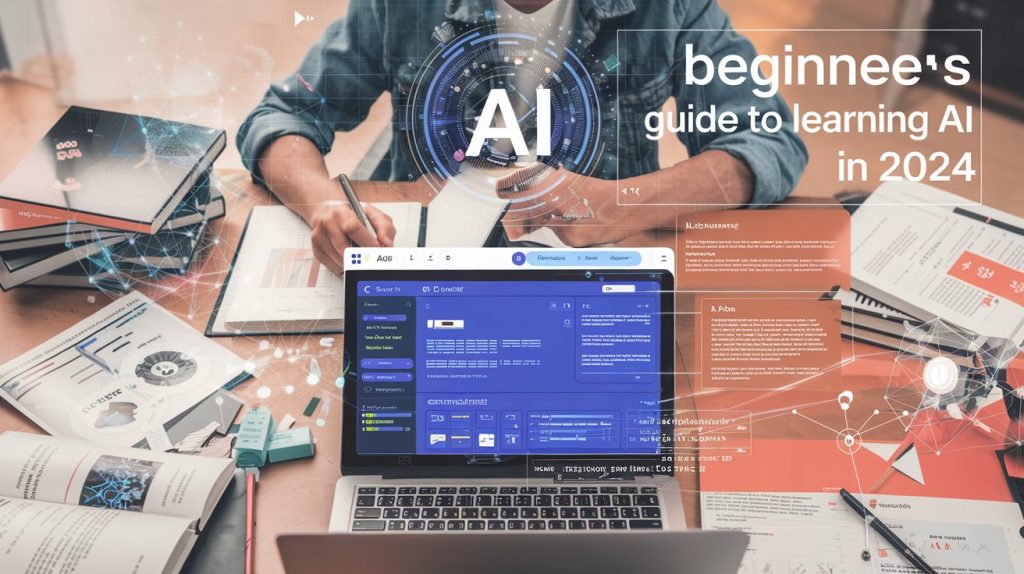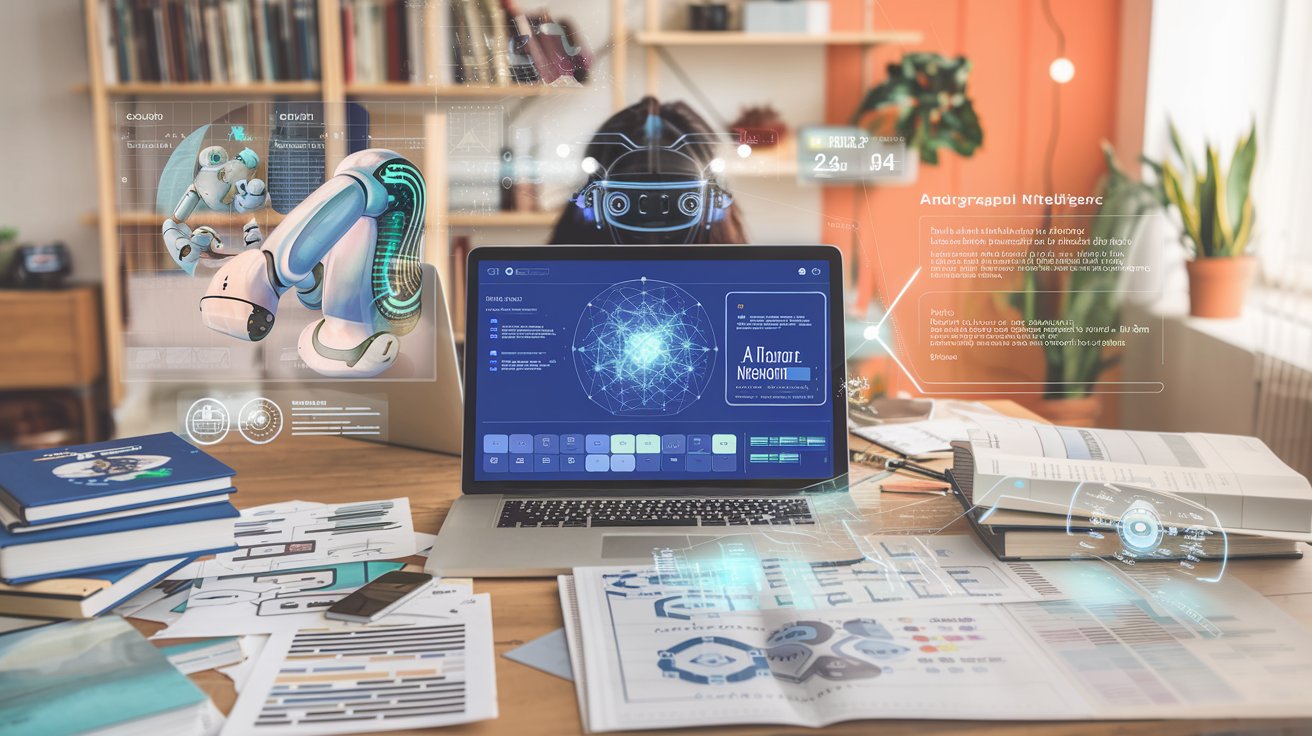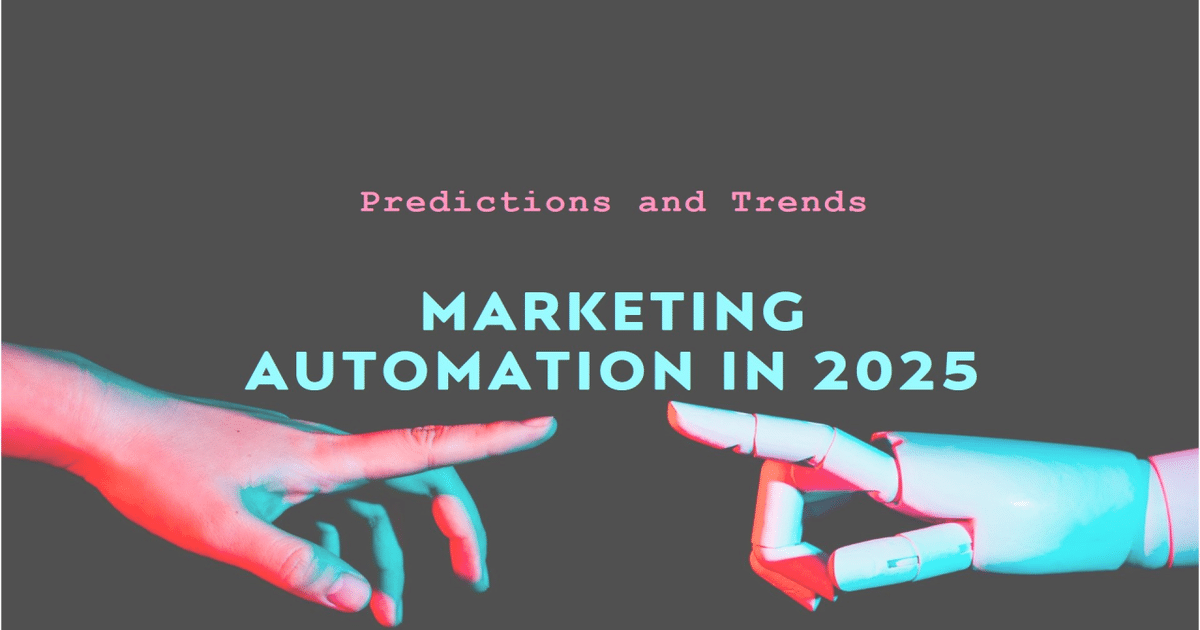Artificial Intelligence (AI) has become an integral part of our digital landscape, revolutionizing industries and shaping the future of technology. This comprehensive guide aims to provide beginners with a roadmap to understanding and learning AI in 2024, highlighting its importance and offering practical steps to get started.

Learning AI
AI matters because it’s transforming industries across the board, from healthcare and finance to transportation and entertainment. Its ability to process vast amounts of data, recognize patterns, and make predictions is driving innovation and efficiency in ways we’ve never seen before. This rapid advancement underscores the importance of learning AI, as it equips individuals with the skills to navigate and contribute to this technological revolution, opening up new opportunities for personal and professional growth.
Introduction
Understanding AI: What it is and Why it Matters
Artificial Intelligence refers to the simulation of human intelligence in machines programmed to think and learn like humans. It encompasses various technologies that enable computers to perform tasks typically requiring human intelligence, such as visual perception, speech recognition, decision-making, and language translation.
AI matters because it’s transforming industries across the board, from healthcare and finance to transportation and entertainment. Its ability to process vast amounts of data, recognize patterns, and make predictions is driving innovation and efficiency in ways we’ve never seen before.
Benefits of Learning AI in 2024
Learning AI in 2024 offers numerous advantages:
- Career Opportunities: The demand for AI professionals is skyrocketing, with lucrative job prospects across various sectors.
- Problem-Solving Skills: AI teaches you to approach complex problems systematically, a valuable skill in any field.
- Innovation Potential: Understanding AI allows you to contribute to cutting-edge technologies and solutions.
- Competitive Edge: AI knowledge gives you a significant advantage in today’s tech-driven job market.
- Future-Proofing: As AI continues to evolve, those with AI skills will be well-positioned for the jobs of tomorrow.
Getting Started with AI
Identifying Your Learning Goals
Before diving into AI, it’s crucial to define your objectives. Ask yourself:
- What aspects of AI interest you most? (e.g., machine learning, natural language processing, computer vision)
- Are you looking to change careers or enhance your current role?
- Do you want to develop AI applications or focus on understanding AI’s impact on your industry?
Clear goals will help you choose the right learning AI path and resources.
Resources for Beginners
For those new to AI, we recommend starting with these resources:
- Online Platforms: Coursera, edX, and Udacity offer excellent introductory AI courses.
- Books: “Artificial Intelligence: A Modern Approach” by Stuart Russell and Peter Norvig is a comprehensive introduction to AI.
- YouTube Channels: Channels like “Two Minute Papers” and “Lex Fridman” offer engaging AI content for beginners.
- AI Communities: Join platforms like Kaggle or AI-related subreddits to connect with other learners and experts.
Basic Concepts of AI
Overview of Machine Learning
Machine Learning (ML) is a subset of AI that focuses on creating systems that learn from data. Key concepts include:
- Supervised Learning: Training models using labeled data
- Unsupervised Learning: Finding patterns in unlabeled data
- Reinforcement Learning: Learning through interaction with an environment
Understanding these concepts is crucial for grasping how AI systems learn and improve over time.
Introduction to Neural Networks
Neural Networks are AI models inspired by the human brain. They consist of interconnected nodes (neurons) organized in layers. These networks excel at tasks like image and speech recognition.
Key types of neural networks include:
- Convolutional Neural Networks (CNNs) for image processing
- Recurrent Neural Networks (RNNs) for sequential data
- Transformers for natural language processing tasks
Understanding Natural Language Processing
Natural Language Processing (NLP) is the branch of AI focused on enabling computers to understand, interpret, and generate human language. NLP powers technologies like:
- Chatbots and virtual assistants
- Language translation services
- Sentiment analysis tools
Learning NLP basics will help you understand how AI interacts with human language.
Learning Pathways
Online Courses for Beginners
Several online platforms offer excellent AI courses for beginners:
- Coursera’s “AI for Everyone” by Andrew Ng
- edX’s “Introduction to Artificial Intelligence” by IBM
- Udacity’s “Intro to Artificial Intelligence”
These courses provide a solid foundation in AI concepts and applications, making learning AI accessible to everyone.
Books and Publications on AI
Essential reading for AI beginners includes:
- “AI Superpowers” by Kai-Fu Lee
- “Life 3.0: Being Human in the Age of Artificial Intelligence” by Max Tegmark
- “The Hundred-Page Machine Learning Book” by Andriy Burkov
These books offer insights into AI’s impact and practical knowledge for those learning AI.
Free Resources and Tutorials
Numerous free resources are available for learning AI:
- Google’s Machine Learning Crash Course
- Fast.ai’s Practical Deep Learning for Coders
- OpenAI’s Spinning Up in Deep Reinforcement Learning
These resources provide hands-on experience with AI technologies, essential for effective learning AI.
Practical Applications of AI
AI in Business
AI is revolutionizing business operations through:
- Predictive analytics for customer behavior
- Automated customer service with chatbots
- Supply chain optimization
- Personalized marketing campaigns
Understanding these applications can help you leverage AI in your business or career.
AI for Content Creation
AI is transforming content creation with tools like:
- GPT-3 for text generation
- DALL-E for image creation
- Jasper.ai for marketing content
Learning to use these tools can enhance your creative processes and productivity.
AI in Engineering and Design
AI is making significant strides in engineering and design:
- Generative design in product development
- Predictive maintenance in manufacturing
- Autonomous systems in robotics
Exploring these applications can inspire innovative solutions in your field.
Community and Networking
Joining AI Forums and Groups
Engaging with the AI community is crucial for learning AI and growth. Consider joining:
- AI-focused LinkedIn groups
- Reddit communities like r/MachineLearning
- Stack Overflow for technical discussions
These platforms offer opportunities to learn from experts and peers.
Attending AI Workshops and Conferences
Participating in AI events can accelerate your learning:
- Local AI meetups (check Meetup.com)
- Virtual AI conferences like AI Summit
- Workshops offered by tech companies like Google and Microsoft
These events provide networking opportunities and exposure to cutting-edge AI developments.
Future Trends in AI
Emerging Technologies in AI
Stay informed about emerging AI technologies:
- Quantum AI for complex problem-solving
- Edge AI for real-time processing on devices
- AI in cybersecurity for threat detection
Understanding these trends will help you anticipate future developments in the field.
Preparing for the Future Job Market
To stay competitive in the AI-driven job market:
- Develop a strong foundation in mathematics and programming
- Stay updated with the latest AI research and applications
- Build a portfolio of AI projects to showcase your skills
Continuous learning AI is key to thriving in the rapidly evolving AI landscape.
Conclusion
Recap of Key Points
We’ve covered the fundamentals of AI, learning resources, practical applications, and future trends. Remember that learning AI is a journey that requires dedication and continuous exploration.
Encouragement to Start Learning AI Today
The field of AI offers exciting opportunities for innovation and career growth. By starting your AI learning journey today, you’re investing in a skill set that will be increasingly valuable in the years to come.
We encourage you to explore the resources mentioned in this guide and take your first steps into the world of AI. Remember, every expert was once a beginner, and with persistence and curiosity, you can make significant strides in understanding and applying AI.
For more insights on AI tools and resources, visit AItoolsbiz. Our team of experts is dedicated to helping you navigate the world of AI and leverage its power in your personal and professional life.
Stay updated with the latest in AI by following us on YouTube, Twitter, and LinkedIn.
What are the prerequisites for learning AI?
While a background in mathematics and programming is helpful, it’s not strictly necessary to start learning AI. Many online courses and resources are designed for beginners with no prior experience. However, as you progress, you’ll find that a solid understanding of linear algebra, calculus, and programming (particularly Python) will be beneficial.
How long does it take to become proficient in AI?
The time it takes to become proficient in AI varies depending on your background, dedication, and learning pace. Generally, with consistent effort, you can gain a good understanding of AI basics within 6-12 months. However, becoming an expert in the field typically requires several years of study and practical experience.
Is it possible to learn AI without a formal degree?
Absolutely. While a formal degree can provide structured learning and networking opportunities, many successful AI professionals are self-taught. With the abundance of online resources, tutorials, and open-source projects available, it’s entirely possible to learn AI on your own. The key is to be consistent in your learning and to apply your knowledge through practical projects.
To deepen your understanding of AI and its applications, we invite you to explore the resources available at AItoolsbiz. Our team of experts regularly publishes articles, guides, and tutorials on various aspects of AI technology. Visit our website at https://aitoolsbiz.com for in-depth content on AI operations, trends, and best practices.







